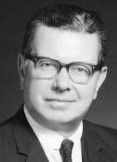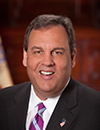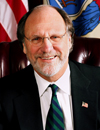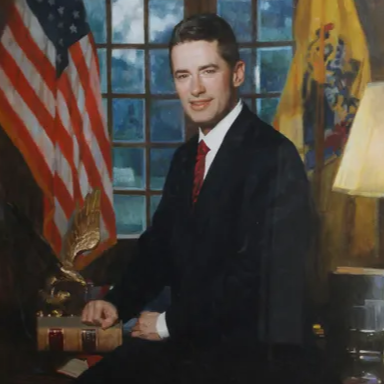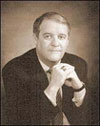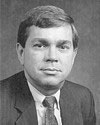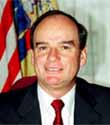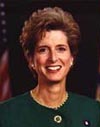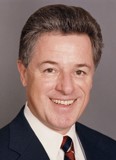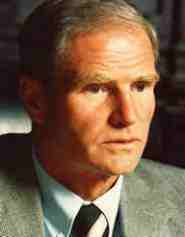New Jersey
Gov. Richard Joseph Hughes
- January 16, 1962 - January 20, 1970
- Democratic
- August 10, 1909
- December 7, 1992
- New Jersey
- St. Charles College, St. Joseph's College, New Jersey Law School
- Married twice--Miriam McGrory, Elizabeth Murphy; ten children
About
RICHARD JOSEPH HUGHES was born in Florence, New Jersey on August 10, 1909. He studied at St. Charles College in Catonsville, Maryland, and at St. Joseph’s College in Philadelphia. At one time, he intended to become a Roman Catholic priest, but he turned to the study of law, receiving a LL.B. from New Jersey Law School in 1931. Admitted to the bar in 1932, he opened a law office in Trenton. He was appointed assistant U.S. attorney for New Jersey in 1939, but after being elected Mercer County Democratic chair in 1945 he lost his federal post and returned to private law practice. In 1948, Acting Governor John Summerill Jr. nominated Hughes to be judge of the Court of Common Pleas (later changed under court reorganization to Mercer County Court). In February 1952 Governor Alfred Driscoll named Hughes superior court judge. Though he was considered for the state supreme court, Hughes returned to private law practice in 1957 to support his family. He ran successfully for governor in 1961 and was reelected in 1965. During his tenure, Governor Hughes created a commission to study the Meadowlands development; brought the Democratic National Convention to New Jersey for the first time; secured the takeover of the Hudson and Manhattan Railroad by the Port of New York Authority in return for approval of the construction of the World Trade Center; vetoed a bill requiring students to salute the flag in contravention to a U.S. Supreme Court ruling; supported police behavior during civil disorders in Jersey City and Paterson; and urged social reform to eliminate causes of discontent. Governor Hughes served on the National Governors’ Conference Executive Committee from 1963 to 1965. After leaving office, Hughes returned to private law practice. After state supreme court Chief Justice Pierre Garven died, Governor Cahill named Hughes for the post. As chief justice, Hughes handed down pathbreaking decisions on zoning, legislative redistricting, and thorough and efficient education. When he reached the mandatory retirement age of 70, Hughes again returned to private practice. He passed away December 7, 1992.
Source
Governors of the American States, Commonwealths and Territories, National Governors’ Conference, 1969.

